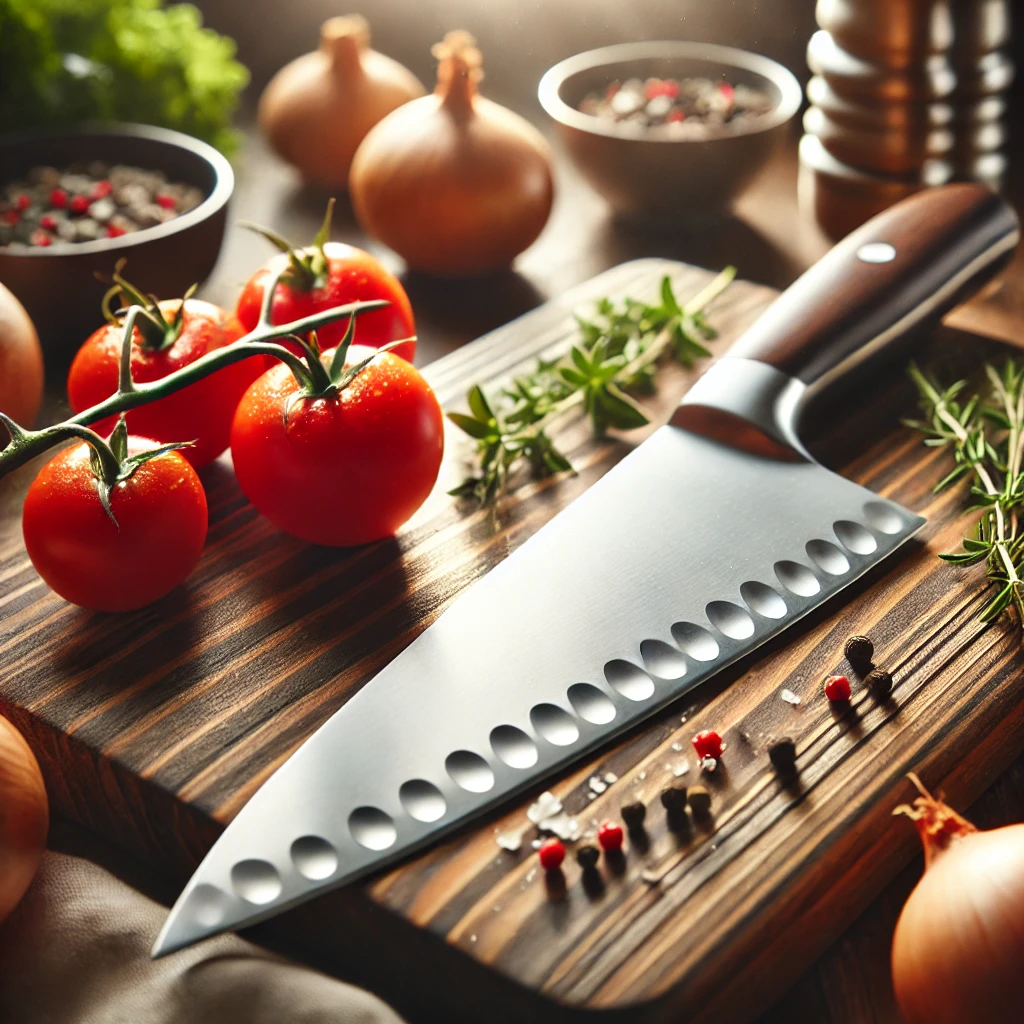Knives are essential in the best-arranged kitchen, whether you own a professional kitchen or a home space. these are crucial utensils. Cleaning and maintaining kitchen knives prolongs their life and improves their performance and safety. In this blog post, we‘ll examine how to clean and maintain your kitchen knives effectively so they stay sharp, safe, and ready for use.
Why Cleaning and Maintaining Kitchen Knives Is Important
Neglecting your kitchen knives can lead to dull blades, rust, and unsanitary conditions, impacting their efficiency and lifespan. Clean and well-maintained kitchen knives provide a smoother cutting experience, reduce accidents, and ensure your food preparation remains hygienic.
How to Clean a Washing Machine: Step-by-Step Guide
How to Clean Kitchen Knives Properly
Cleaning kitchen knives may not be complicated; however, improper cleaning can damage their blades or handles. The steps for effective cleaning are as follows:
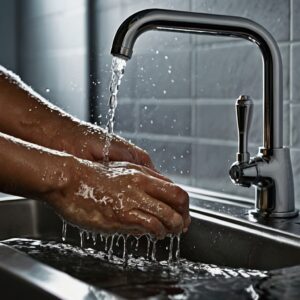
- 1. Hand Wash Kitchen Knives: Never place kitchen knives in the dishwasher. The high heat, detergent, and jostling may damage the blade and handle. Immediately after use, clean kitchen knives under warm running water using mild dish soap and a soft sponge.
- 2. Care with the Blade. To avoid accidental cuts, handle the blade gently. While cleaning the blade, follow the directions away from your hand to avoid injury.
- 3. Dry Kitchen Knives Immediately
After washing, dry kitchen knives with a soft, lint-free towel. Leaving them wet can lead to rust or water spots.
Tips for Maintaining Kitchen Knives
Regular maintenance is key to keeping your kitchen knives in top condition. Here are the best ways to maintain them:
1. Sharpen Your Kitchen Knives Regularly
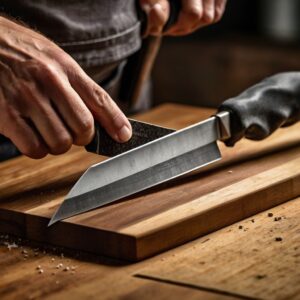
Use a sharpening stone, honing rod, or electric sharpener to maintain a sharp edge.
Sharpen your knives after each few uses to align the blade and sharpen them after every few months, depending on usage.
2. Keep Kitchen Knives Safe
Invest in a knife block, magnetic strip, or blade guards to store kitchen knives safely.
Do not just toss them inside a drawer where they get dull and damaged.
3. Oil the Blades to Prevent Rust
For knives made of high-carbon steel, periodically apply a small, food-safe mineral oil layer to the blade to prevent rust from forming.
4. Cut on the Right Surface
Use a wood or plastic cutting board. Avoid glass, marble, or stone surfaces, as these can quickly dull the blade.
How to Clean a Beauty Blender: A Step-by-Step Guide for Makeup lovers
How to Remove Rust from Kitchen Knives
Rust can accumulate on your kitchen knives, especially those of high-carbon steel. Here‘s how to clean and remove rust:
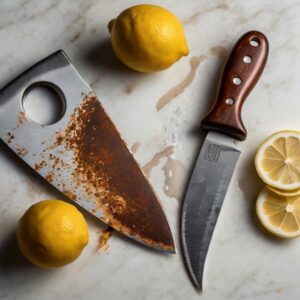
Use Baking Soda
- Mix baking soda and water into a paste. Let it sit on the rusty areas and scrub it with a soft-bristled brush.
Lemon and Salt Process - Sprinkle salt onto the rusted areas, then rub them with a slice of lemon. Let it sit for a few minutes and wash off.
Chemical Rust Remover - If the above home-based methods have failed, use a product designed to remove knife rust. Ensure it is food-safe.
How to Extend the Lifespan of Kitchen Knives
Follow these extra tips to optimize the lifetime of your kitchen knives:
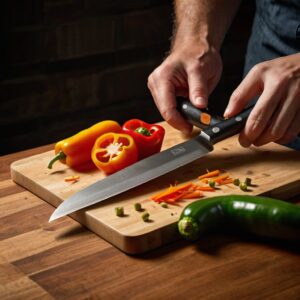
- Do not use your kitchen knives as tools. Refrain from using them to open packages, pry off lids, or do anything else they weren’t made for.
- Avoid cutting frozen foods. If you try to cut through frozen items, the knife will chip. Let them partially thaw first.
- Regular Inspections: Check your knives regularly for any form of wear, such as chips on the blade or cracks in the handle.
Mistakes to Steer Clear in Cleaning of Kitchen Knives
- Soaking Kitchen Knives: Knives should not be soaked in water, especially for a long period. This can damage the handle and lead to rust on the blade.
- Using Harsh Scrubbers: Rubbing or cleaning knives with coarse sponges or steel wool can scratch the blade and remove its protective coating.
- Lack of Sharpening and Whetting: Failure to hone or whet knives results in a dull edge that puts one at risk of using knives.
Advantages of Cleaning and Maintaining Kitchen Knives
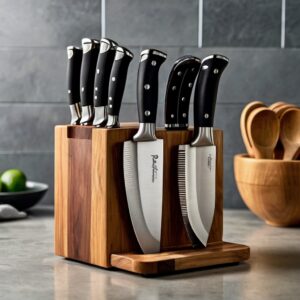
- Better Performance: Sharp, clean knives accelerate food preparation.
- Safety Improvement: A sharp knife is safer than a dull one since it requires less force and less momentum to control.
- Longer Lifespan: Regular maintenance protects your investment, ensuring your kitchen knives last for years.
- Hygiene: Cleaning ensures no food particles and bacteria settle on your kitchen knives.
Cleaning Knives & Cutting Boards – American Cleaning Institute
Conclusion:
Cleanliness and maintenance of kitchen knives are not complicated issues, but consistency is necessary. Proper washing, sharpening, and stocking the knife regularly, thus prolonging its use and improving your cooking operation, are necessary. Then, develop these habits as normal habits in your kitchen care, and the knives will last for years.
Start implementing these tips today, and you’ll notice a difference in the way your kitchen knives perform and look!

